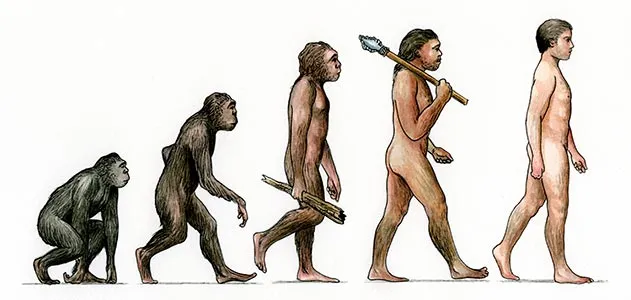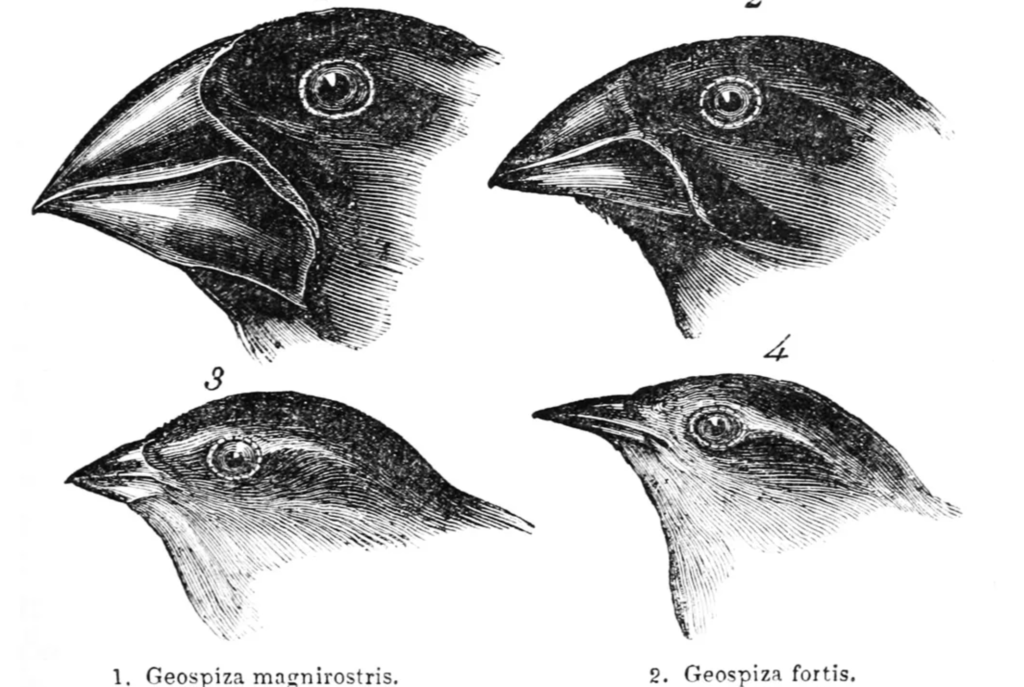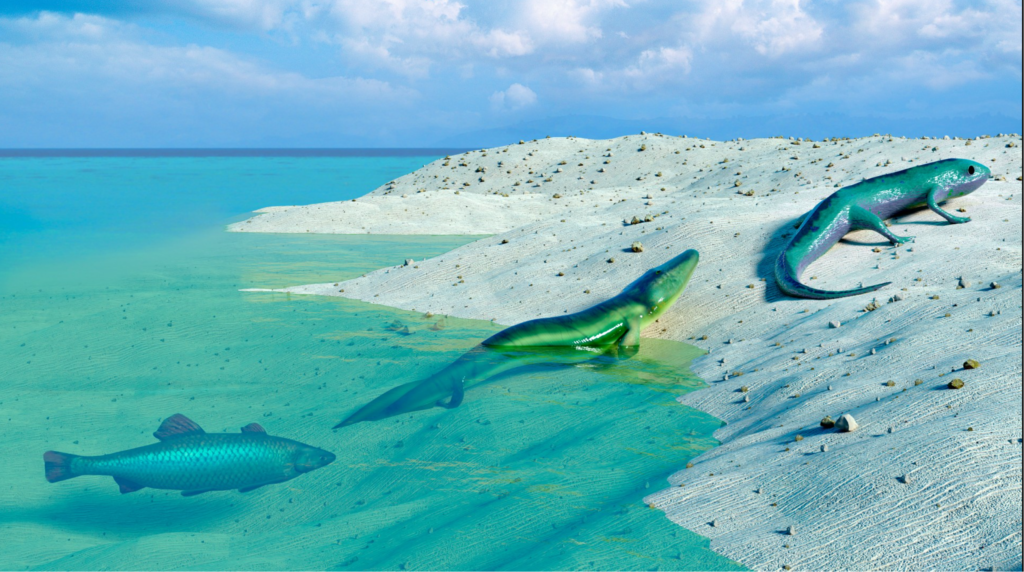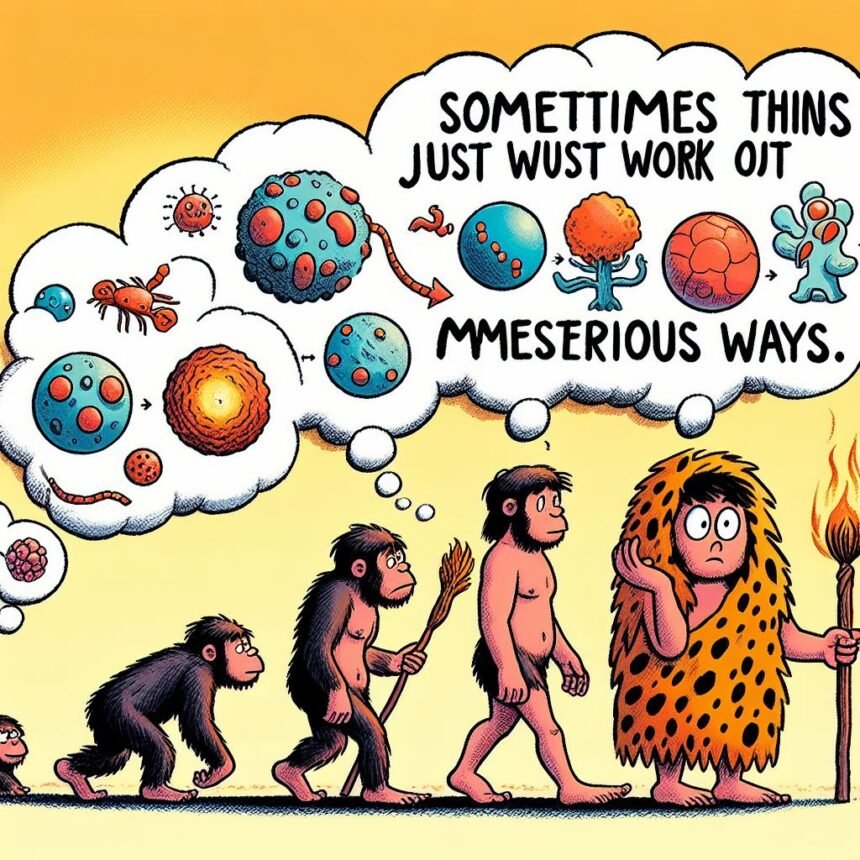Evolution is the process of change in the inherited characteristics of living organisms over generations. Evolution is driven by genetic variation, natural selection, and environmental factors. Evolution can result in the emergence of new species, as well as the adaptation, diversification, and extinction of existing ones
Evolution
One of the common misconceptions about evolution is that it always leads to more advanced species, meaning that the newer or younger species are more complex, intelligent, or superior than the older or ancestral ones. This misconception may stem from the idea that evolution is a linear or progressive process, with a predetermined goal or direction. However, this is not how evolution works. Evolution is a dynamic and complex process that does not inherently favor the development of more advanced species. Instead, it results in a wide array of adaptations and outcomes driven by the interplay of genetic variation, natural selection, and environmental factors
Genetic variation is the source of diversity and novelty in evolution. It refers to the differences in the DNA sequences of individuals within a population or a species. Genetic variation can arise from mutations, gene flow, genetic recombination, and genetic drift. Genetic variation can produce new traits or variations of existing ones, which may or may not be beneficial for the survival and reproduction of the individuals
Also read : The End Of Becoming Older? Medication To Counteract Your Ageing Is Being Developed By A New AI

Natural selection is the mechanism of evolution that determines which traits or variations are more likely to be passed on to the next generation. It refers to the differential survival and reproduction of individuals with different traits or variations in a given environment. Natural selection can favor traits or variations that increase the fitness or the ability to survive and reproduce of the individuals, and eliminate traits or variations that decrease their fitness. Natural selection can result in the adaptation or the improvement of the match between the individuals and their environment
Environmental factors are the external conditions or influences that affect the evolution of living organisms. They include the physical, chemical, and biological aspects of the environment, such as climate, geography, resources, predators, competitors, and parasites. Environmental factors can create challenges or opportunities for the survival and reproduction of living organisms, and can also change over time or space. Environmental factors can shape the direction and pace of evolution, and can also trigger or prevent speciation or the formation of new species

These three factors interact and influence each other in complex and unpredictable ways, resulting in various evolutionary patterns and trends. Evolution can sometimes lead to progress, but it can sometimes lead to the opposite direction. For instance, some organisms may evolve to become more complex or specialized, while others may evolve to become more simple or generalized. Some organisms may evolve to become more intelligent or adaptable, while others may evolve to become more instinctive or rigid. Some organisms may evolve to become more diverse or varied, while others may evolve to become more uniform or similar
Therefore, the concept of advanced species is relative and subjective, depending on the perspective, criteria, and context of the comparison. There is no absolute or objective measure of advancement or superiority in evolution, as different traits or variations may have different advantages or disadvantages in different environments or situations. Moreover, evolution does not guarantee the survival or success of any species, as extinction is a common and inevitable outcome of evolution

In summary, evolution is a dynamic and complex process that does not inherently favor the development of more advanced species. Instead, it results in a wide array of adaptations and outcomes driven by the interplay of genetic variation, natural selection, and environmental factors
FAQ: Why Does Evolution Always Lead to More Advanced Species?
Q: Does evolution always lead to more advanced species?
A: No, evolution does not necessarily lead to more advanced species. Evolution is a dynamic process driven by environmental pressures, and the concept of “advancement” can be subjective. Species evolve based on adaptability to their environment, not a predetermined progression toward complexity.
Q: How does evolution work?
A: Evolution is a natural process where heritable traits that enhance an organism’s survival and reproduction become more prevalent in a population over generations. It occurs through mechanisms such as natural selection, genetic drift, and mutation.
Q: Why do some species appear more advanced than others?
A: The perception of advancement is often influenced by characteristics like intelligence, complexity, and adaptability to diverse environments. However, these traits are context-dependent and vary based on the ecological niche a species occupies.
Q: Can simpler organisms be more successful in certain environments?
A: Yes, simpler organisms can be highly successful in specific environments. Evolution favors traits that enhance survival and reproduction in a given context. Simplicity or specialized adaptations may confer advantages in certain ecological niches.
Q: What role does natural selection play in evolution?
A: Natural selection is a key mechanism in evolution. It favors the survival and reproduction of individuals with traits that increase their fitness in a particular environment. Over time, these advantageous traits become more common in the population.
Q: Are there instances of species becoming less complex over time?
A: Yes, evolution can lead to simplification or loss of certain traits if they become unnecessary for survival. This process, known as evolutionary regression, occurs when complexity offers no selective advantage in a given environment.
Q: Is there a goal or predetermined direction in evolution?
A: No, evolution has no predetermined direction or goal. It is a result of interactions between organisms and their environments. Species evolve based on their ability to adapt and reproduce successfully within specific ecological conditions.
Q: Can environmental changes influence the course of evolution?
A: Yes, environmental changes play a significant role in shaping evolution. Shifts in climate, habitat, or resource availability can drive selection pressures, leading to adaptations that enhance a species’ survival in the altered conditions.
: Are all extant species the result of ongoing evolution?
A: Yes, all extant species are the product of ongoing evolutionary processes. Evolution is a continuous and dynamic phenomenon that shapes the diversity of life on Earth.
Q: In conclusion, why is the idea of evolution leading to more advanced species a misconception?
A: The idea of evolution inherently leading to more advanced species is a misconception because evolution is not goal-oriented. It is driven by adaptation to specific environments, and the success of a species depends on its ability to navigate ecological challenges rather than a linear progression toward complexity.
Also read : This Is How An Artificial intelligence-Versus-Humanity Conflict Would Truly Conclude




































